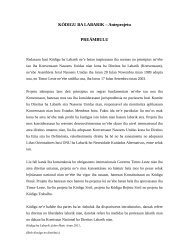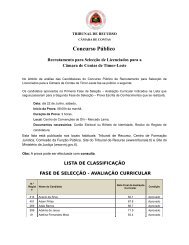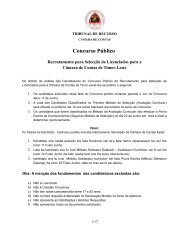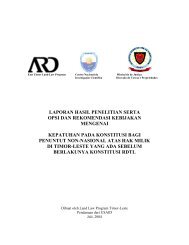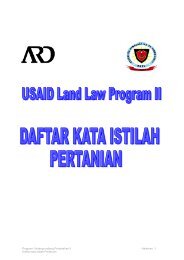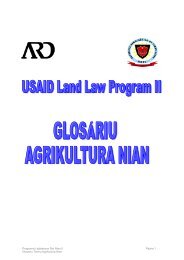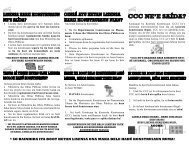English
English
English
Create successful ePaper yourself
Turn your PDF publications into a flip-book with our unique Google optimized e-Paper software.
property and thereafter subtract from or add to this amount, on the basis of other relevant circumstances,<br />
which both “just and equitable” compensation and reference to the list in Article 25 (3) may require. As to<br />
market value, the Land Claims Court adopted a test known to Commonwealth expropriation jurisprudence<br />
as the Pointe Gourde principle. In Pointe Gourde, Quarrying & Transport Co Ltd vs. Sub-Intendent of<br />
Crown Lands (Trinidad), the principle was established that market value at the time of expropriation must<br />
be determined by disregarding any increase or decrease in the market value of the expropriated property<br />
arising from the carrying out of, or the proposal to carry out, the expropriation scheme. This is necessary<br />
because a planned expropriation often has the effect of distorting the market.<br />
As to the other factors listed in Article 25 (3), no precise method for calculating values that are based on<br />
considerations of equity and justice exists, and the court’s decision in each individual case will thus<br />
determine the method and outcome of this process. For example, the current use of the property may be<br />
relevant where property is currently not utilized by its owner or where it is held simply for speculative<br />
purposes. In such a case, compensation calculated at less than market value may be just and equitable.<br />
Similarly, the history of acquisition and use can also prove to be a decisive factor in a downward<br />
adjustment of compensation. This was notably the case against the government of South Africa (1999),<br />
where land occupied by labor tenants had been bought below market value after the promulgation of the<br />
Land Reform (Labor Tenants) Act (Act 3 of 1996), which protects labor tenants from eviction. Awarding<br />
the market value would have been unfair and would not have reflected an equitable balance between the<br />
public interest and the owner’s interests. This factor would usually also cover cases where property was<br />
acquired from the outgoing government for less than market value. Thus, the incumbent government<br />
might be able to reverse the process by which state assets were transferred cheaply into private hands in<br />
the period leading up to the first democratic elections in South Africa.<br />
NON-CUSTOMARY PRIMARY INDUSTRY LAND SURVEY 7



